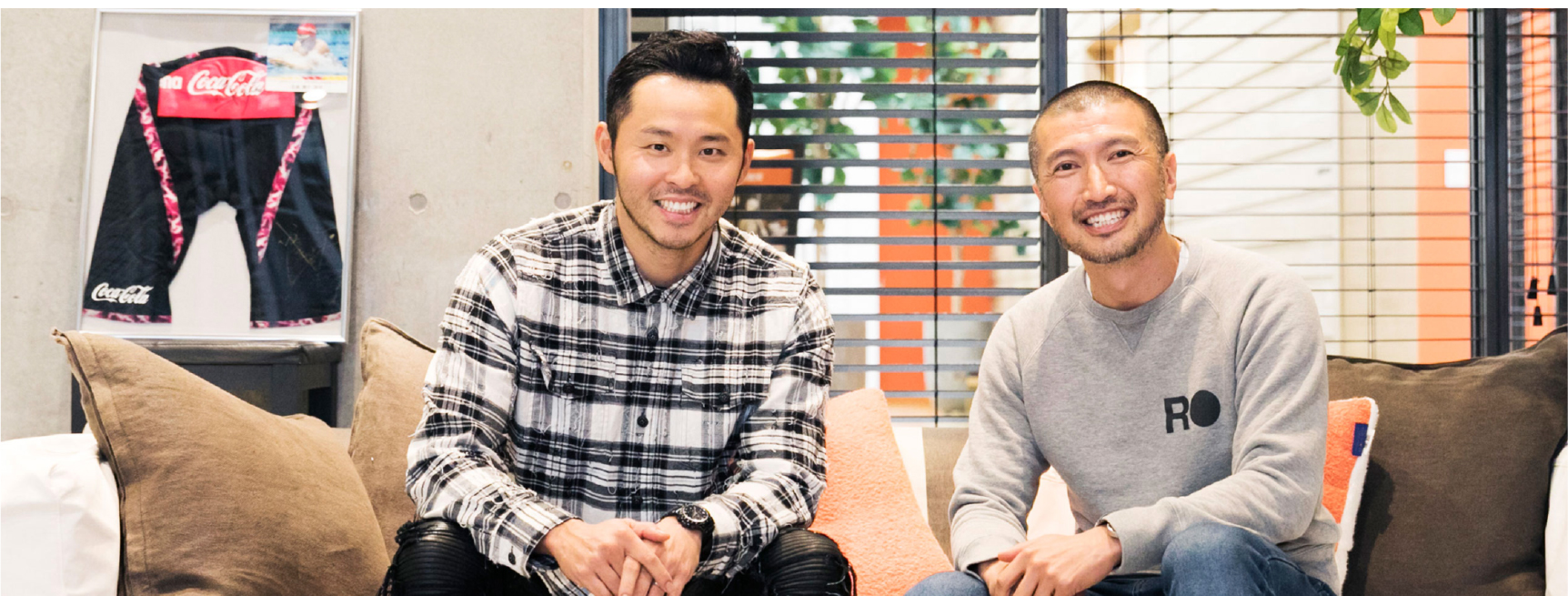In-Depth Conditioning Discussion No.01Getting to Know Your Own Body
Masumi Kuwata x Takeshi Suzuki. (R-body)
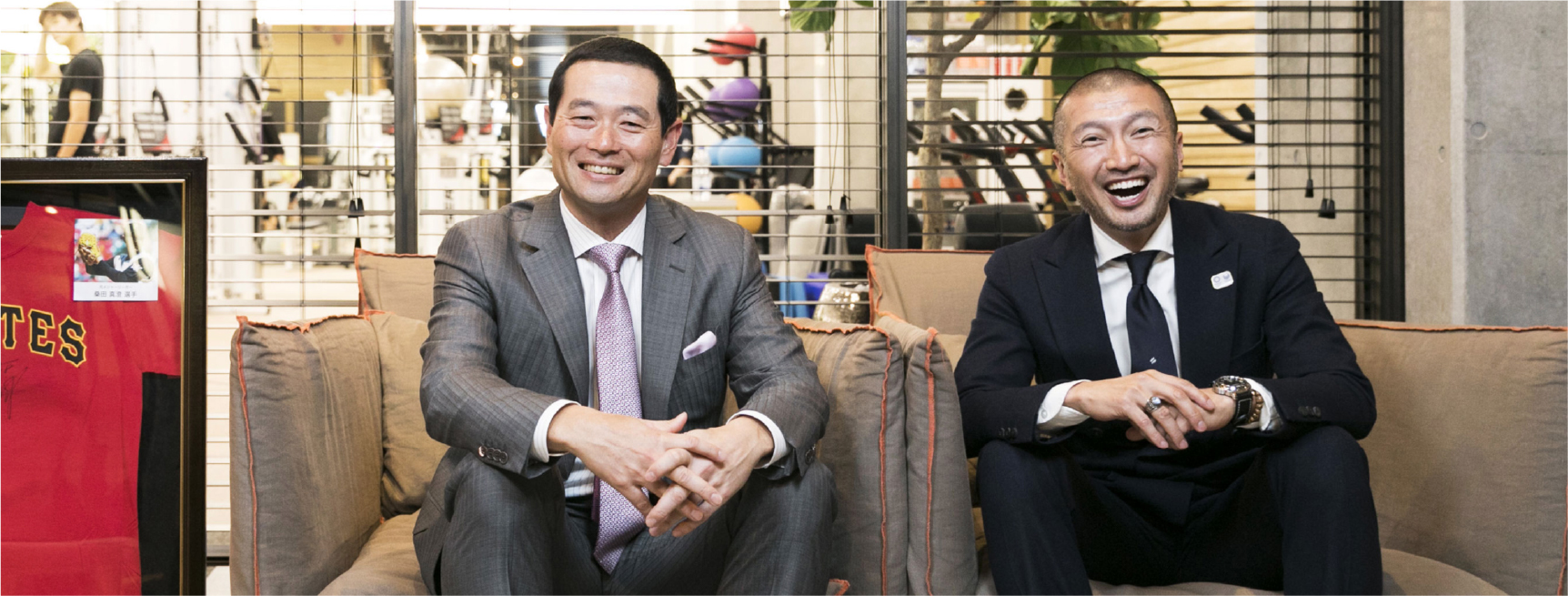
Masumi Kuwata had a long career as a top-level professional baseball player both in Japan and overseas. And now has retired from playing professionally, he says "My intention is not just to live a long life. I want to live a long life with a healthy body". To that end, he has kept on taking conditioning sessions to ensure he keeps his body in its best possible condition. In this interview, Mr. Kuwata is joined by Mr. Suzuki, the CEO of R-body, as they discuss a wide range of topics, including Mr. Kuwata's thinking on conditioning, the importance of athletic trainers, the education and development of competitive athletes in Japan, and much more.
* This conversation took place in February, 2018.
Not having a large body, I had to come up with a plan.
Suzuki : Thank you for joining us today Mr. Kuwata!
Kuwata : Not at all. It's my pleasure to be here.
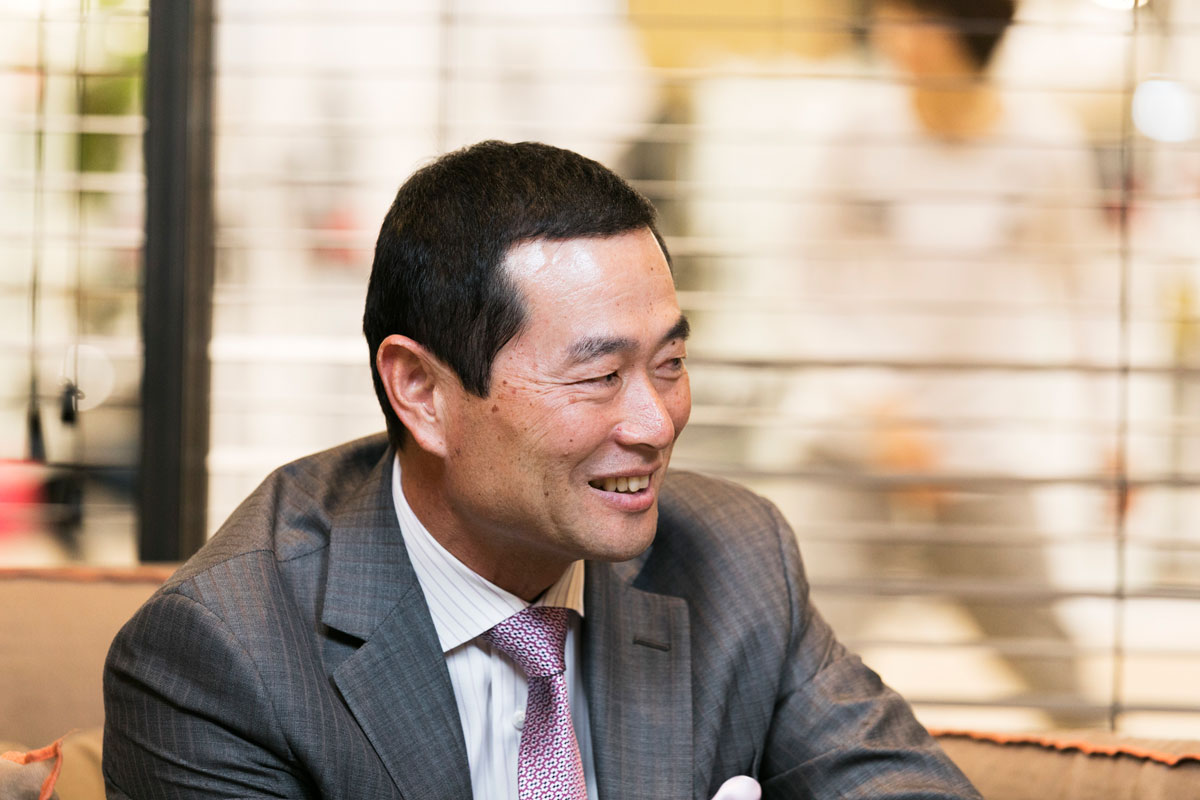
Suzuki : How long have you been coming to R-body now?
Kuwata : Since I was playing for the Giants, so it must be over 10 years now…since about 2005 I think. I found out about R-body through the Internet.
Suzuki : R-body is not just for athletes, but also for business people, housewives, elderly people, and so on. There are always various people taking conditioning sessions on the same floor alongside you. Despite being famous, I've noticed you make time to chat to the other customers as much as possible. Why is that?
Kuwata : Well, I don't know their names or what their occupation is, but for me they are training in the same place, so they are in effect my "training buddies". That's why I not only say hello, but also make time to praise them if they have made progress or changed their physique. It doesn't matter whether they are an athlete or a businessman, I think it is important to give people encouragement as they strive to improve.
Suzuki : That's a fantastic attitude. By the way, have you been thinking deeply about your body and "conditioning" for a long time?
Kuwata : As far as baseball players go, I was never physically blessed. Of course I had to compete against players who were much bigger than me, and felt that even if I trained two or three times what they did, I would never be able to match them due to the difference in natural physicality. So I began to think about how I could win, and came to the conclusion that the only way was to get the ultimate performance out of the body I'd been given. That meant being in the best possible condition for every game.
Suzuki : I see.
Kuwata : To make that happen, I knew that top-quality training and nutrition, as well as appropriate recuperation, would be needed. So I started studying books by myself, and visiting training facilities around the world to try out the most advanced training techniques. From that I learned a lot of useful things, but ultimately I realized that you need to understand your own body and learn how to move with both power and control.
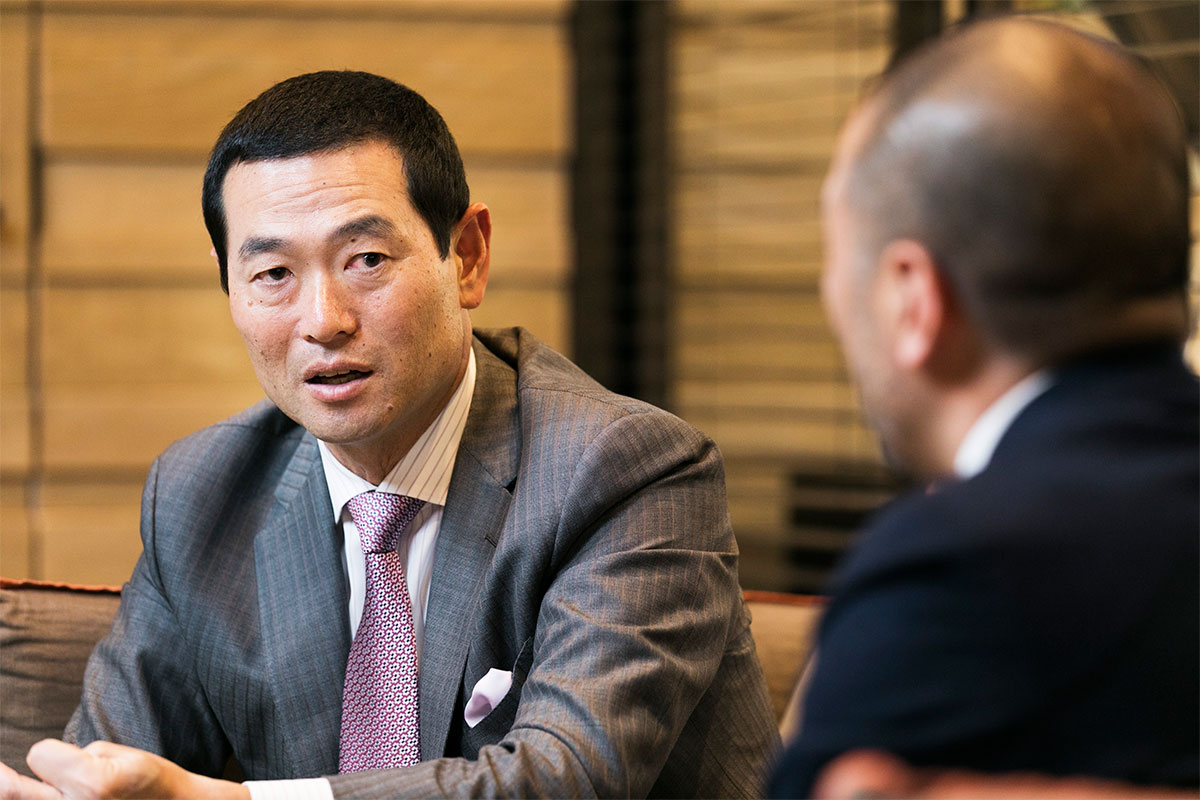
Suzuki : Yes, that's so important.
Kuwata : Specifically, I realized that it was really important to be able to firmly support my weight whilst focusing on my center of gravity. This kind of training, that focuses on movement control is deeply connected to the action of actually pitching a baseball. So it is really practical kind of training. On the other hand, just doing weight training with no thought to pitching form is completely pointless in my opinion.
Suzuki : Yes, now we are starting to define the meaning of "conditioning".
Kuwata : Kuwata: For example, in my case I've pitched so many balls that my right elbow does not extend as far as my left one. However, for me, one of my goals of 'conditioning' is to either "find a way to move normally despite this abnormality" or to "undertake training to ensure this abnormality doesn't cause me pain or injury". At R-body, you guys give me clear guidance on how to improve while keeping these goals in mind, so it is extremely helpful for me.
Suzuki : Exactly! One of the key things to think about when doing conditioning training is to "learn correct movement patterns". For example, a common theme we have seen is that when a baseball pitcher complains about shoulder pain, the cause is not the shoulder itself, but in fact comes from things like the hip joint not moving properly or something to do with how the front foot is planted when stepping forward during the follow through.
Kuwata : Yes, that's right.
Suzuki : That's why we can't say "let's just treat the shoulder and everything will be ok!". Instead, the first thing to fix is the lower body, which is what's actually causing the shoulder pain. Next, we use exercise therapy to get the shoulder and lower body working in sync. And finally, we work on making sure the body remembers these correct movement patterns, i.e. making it a subconscious habit. This flow is really important.
What Kind of Training is a Good Fit for Me?
Kuwata : I think each person has their own reason for doing conditioning training. And it's important to have a goal to work towards, whatever that may be…for some people it is to walk with a good posture, for others it is to build muscle, and for others it is to become more flexible. There are many ways to achieve these goals through conditioning, of which R-body is just one. But, I feel that the conditioning work we do at R-body is a great fit for me personally.
Suzuki : One thing that really impresses me about you is that you are always open to new ideas. For example, you are even eager to listen to the advice of our less experienced trainers, and you are willing to try out things they suggest to see if it's a good fit for you.
Kuwata : If I may pay a compliment back, one of the things that is great about R-body is that the trainers are always keeping up to date with the latest training techniques and ideas. Each year they are increasing their knowledge. And my training program is also constantly evolving. Just when I get used to the workouts, the trainers will say "Let's change it up". If I ask them "Why do we have to change it?", they always explain the reasoning with sound logic. And it's great to be constantly kept on my toes and challenged like this; it creates a very positive environment.
Suzuki : You don't judge people by their age, and are always forward thinking, so that really gives great motivation to our younger trainers, too. (laughs)
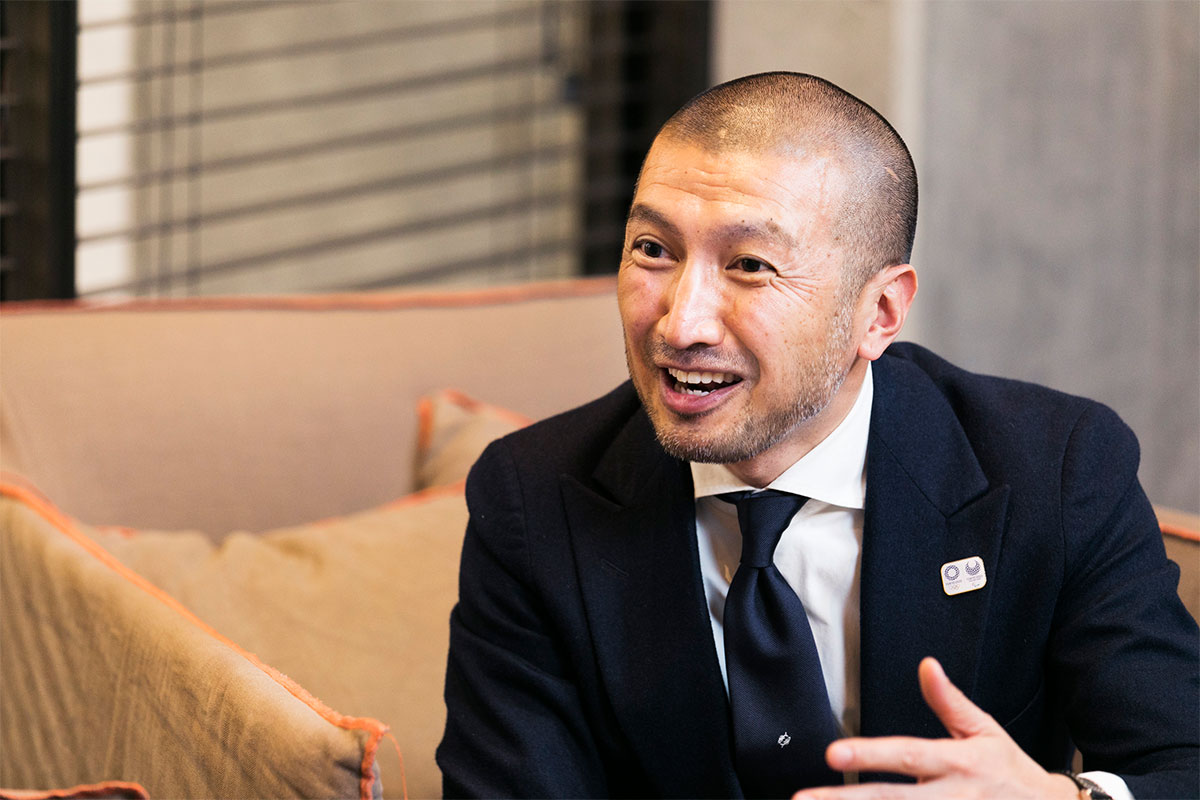
Kuwata : Although behind my back they may be thinking, "That guy's so obsessed with the tiniest details - it's killing me!" (laughs)
Suzuki : On the contrary, it's a blessing for the trainer to have a client who thinks that way. As a professional coach, we have to pick what we think is the best route from several options. So if we hear from the client, "I tried it out and it was effective", then that's fantastic feedback for us.
Kuwata : As I mentioned earlier, one of the strengths of R-body is its "education". I've also done my homework and studied a lot about training, so sometimes I'll ask silly questions just to be mean (laughs), but even the younger staff will answer earnestly. And if they don't know the answer, they won't make one up, instead they will tell you honestly, "Sorry, I don't know. I'll check about that and tell you later." And the next time we meet, they will have looked it up and give you an answer.
The Person who Knows the Least About Your Body is Yourself
Kuwata : When I went to play in the Major League in the US, I was 38 years old, but one of the things that surprised me was that if a player was injured and the athletic trainer said "He can't play in the next game", both the manager and the player would say, "OK." without even questioning it. In other words, they trusted and respected the trainer's judgment.
Suzuki : Yeah, that's a situation you see a lot over there.
Kuwata : But back in Japan, the manager would often intervene and say to the player, "Hey, you can play, can't you?" and the player would say, "Yeah, I'm good to go!", even though they were injured. The difference was really startling for me.
Suzuki : In other words, there is a difference in the respect paid towards the profession itself. I think that in Japan, there is still a lack of awareness and understanding about what an athletic trainer actually does. Some people think of a trainer as just being someone who does tapings and massages. So that is something that we need to change ourselves, as trainers; this misguided perception that people have. It has been, and continues to be, a constant desire of R-body to raise the value and perception of trainers in Japan.
Kuwata : Suzuki-san, I would like to ask you, what's your honest opinion about the level of both the trainers themselves and the conditioning work they do in terms of Japanese professional baseball?
Suzuki : Hmm….Well, although we've had some pro baseball trainers come to R-body to learn more, I think they struggle to make time to brush up their knowledge or skill sets. It could be due to the fact that the off season is too short, and the teams' schedules are already jam packed.
Kuwata : I see. It's not 100% the same as what we said earlier about the value and perception of athletic trainers, but I think it is partly connected, in that if the trainers give their opinion and it is ignored, then there is an aspect of "Why bother to improve my skills if nothing is going to change anyway?" about it all.
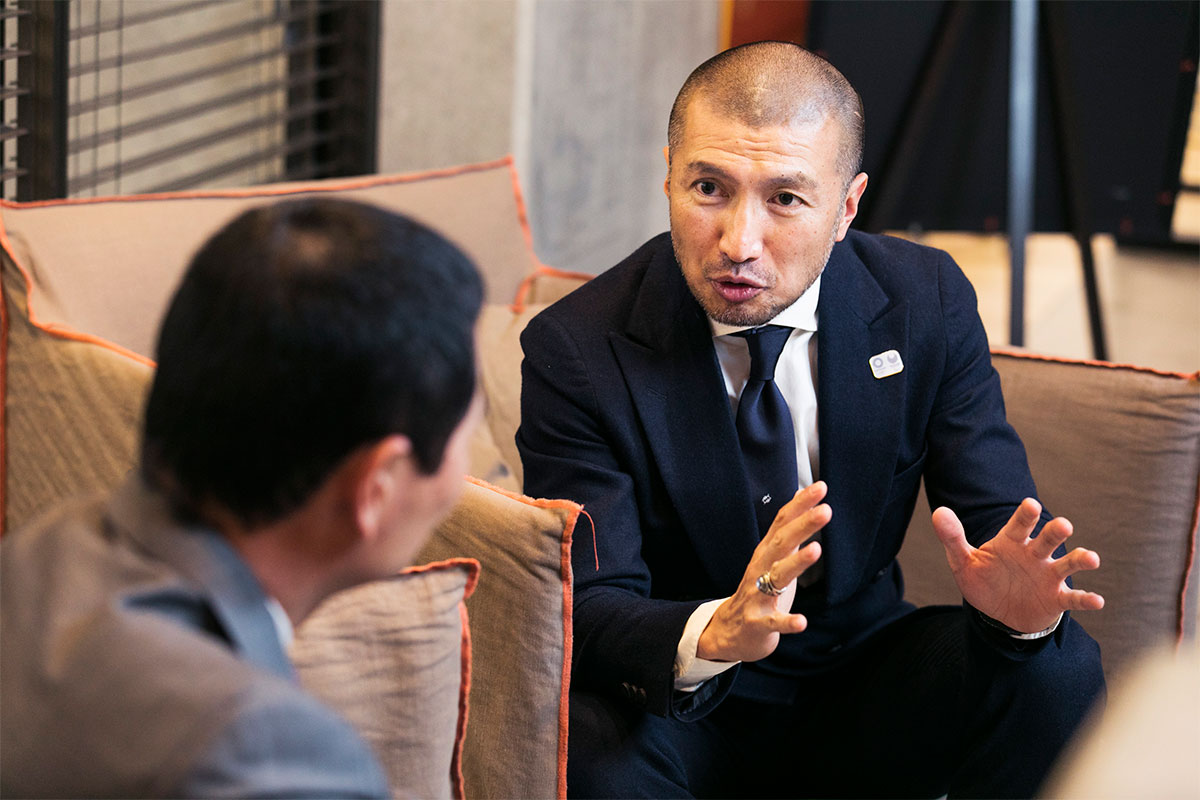
Suzuki : Let me give you an example: a case we often see is that a pro baseball player will start telling us that they have "pain here" and "pain there, too" after just a few minutes training. When we check out the cause, it seems to be nothing more than a lack of flexibility. Yet when we ask them "Don't you do any flexibility training?", they answer "No, I don't"
Kuwata : Even amongst top level athletes, most people really don't know their own body very well. They only know the techniques of their sport, and maybe a bit about weight training. There aren't many people who think about the effects of flexibility on their body's movement, or the relationship between their upper body and lower body, for example.
Suzuki : Ah, I see you feel the same way as me.
Kuwata : From that point of view, one of the main reasons I've been coming to R-body is that I believe "I'm the person who knows the least about my own body". While I often feel that I do know about it, more often than not it turns out I'm wrong. For example, when doing squats, the image I have in my head of how I'm performing them, and the real image I see on the video recording...well there is a big difference.
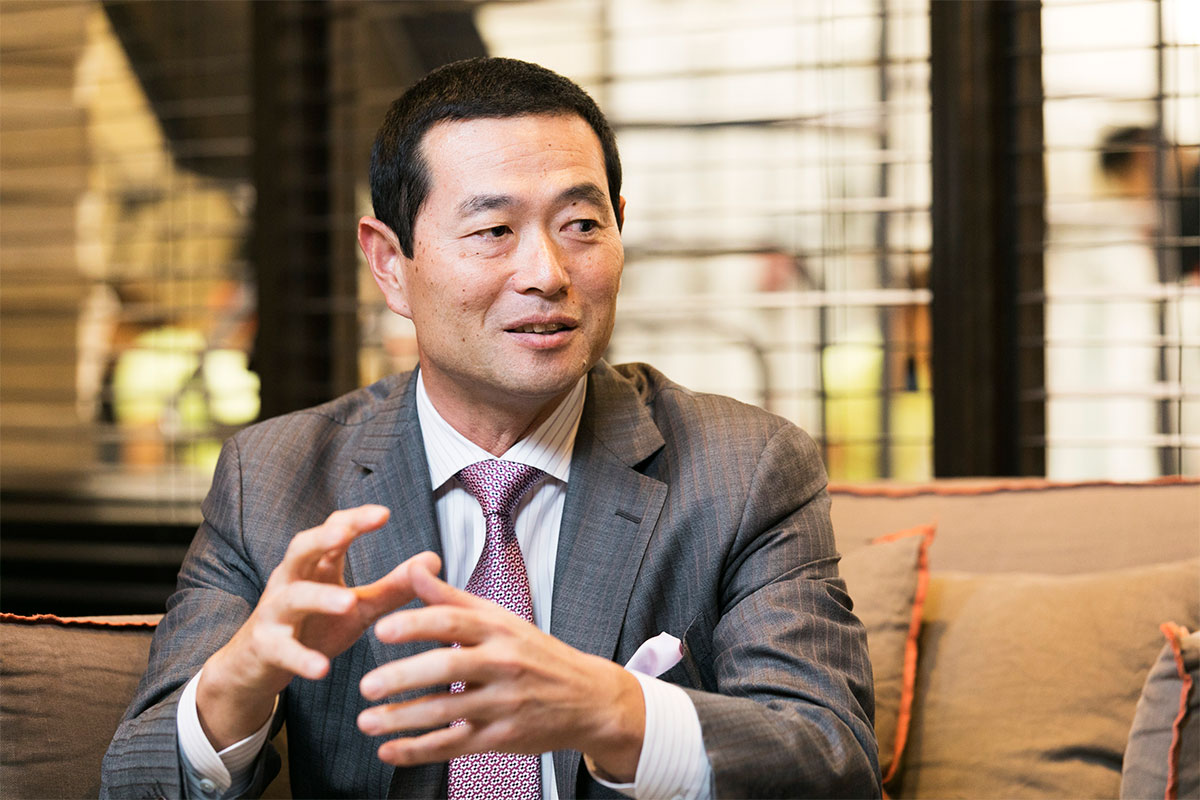
Suzuki : You make a good case for not trusting your own perception! (laughs)
Kuwata : Yes, that's why I like to get a second opinion. When my body isn't moving as I want it to, I speak to the trainer about what might be the cause. We can discuss frankly about whether it is due to a lack of flexibility or some other reason.
Suzuki : There is nothing better for an athletic trainer than to have a client who tries to understand their own body, and who has found a form of conditioning training that is a good fit for them.
Kuwata : Even for a professional athlete, it is difficult to understand our own body completely. At R-body you have slogans like "Get the perfect body for you", or "Training that matches your needs", but I think the most important thing for the general public as well, is to make an effort to get to know your own body.
Suzuki : Yes, "Let's create a world that is full of people living the life they want, with the body they want".
The "Commonly Accepted Knowledge" of the Baseball World
Kuwata : Since I was a teenager, I had my doubts about the "basics" and "commonly accepted knowledge" of the world of baseball. In both professional and amateur baseball in Japan, we are taught "when pitching you should stand straight, and raise your elbow above your shoulder to throw". But whenever I implemented this advice, I got pain in my elbow or shoulder. So I started to wonder whether the basics and fundamentals taught by my coach were a good fit for me personally, and started to pursue my own throwing style, through trial and error, and the result was a pitching style that is far from what is known as the "model" style.
Suzuki : Yes, yes.
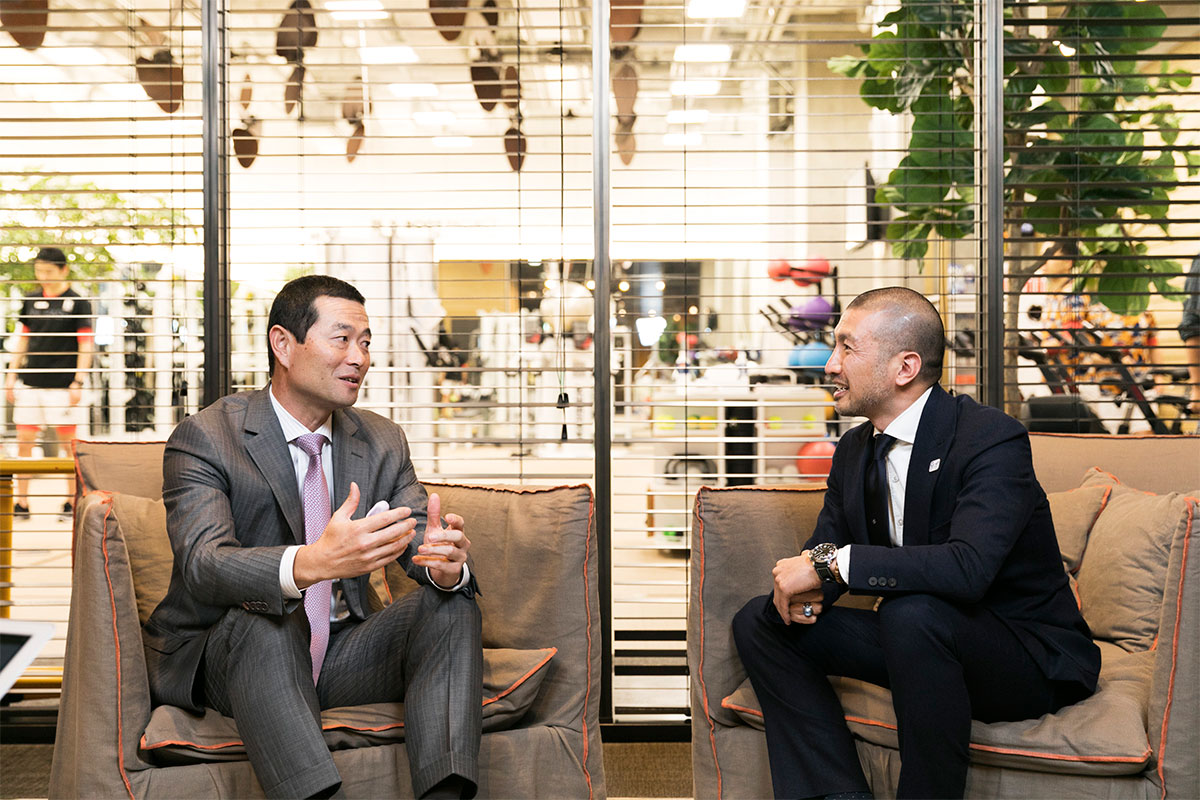
Kuwata : In Junior High School, there wasn't a specialist pitching coach, so I developed a throwing style that was easy on my body. Then, when I got to High School, all the coaches and older boys told me "your pitching style is no good".
I tried to throw like they taught me, but it just wasn't working. This led to me being dropped from pitching and converted into an outfielder. But since the outfielders weren't coached to throw in any strict way, I was free to throw the ball back using my own technique. A short time later, one of the temporary coaches saw me throwing using my own unique style and said, "Hey you! Come and throw some pitches from the mound using that technique." (laughs). After that I was allowed to use my original throwing style and didn't look back, winning the National Japan High School Tournament that summer whilst still in first grade.
Suzuki : Wow! What a story!
Kuwata : Well, would you believe the same story repeated itself when I became a professional! Again, I was told by the coaches and manager, "That pitching style may have worked for you in high school, but it won't be any good in the professional game", so I was pushed back to follow the "accepted technique of the baseball world".
For example, if you look at the pitching style of Choji Murata, you can see that he clearly lowers his right shoulder as he pitches the ball. But even a baseball superstar like him coaches the opposite to what he does himself, saying, "you mustn't lower your shoulder". And if you look at greats like Suguru Egawa or Masaichi Kaneda, who is a Major League record breaker by winning over 400 games, they also lower the shoulder, keeping the elbow below the shoulder, meaning that it is at the highest point at the moment of release. But whenever those guys talk about pitching technique, they always teach the "commonly accepted baseball notions".
While I was pondering why that would be, one hypothesis that emerged was, "maybe it's because when those guys were playing there was little video coverage, so they never really had a chance to analyze their own pitching technique?".
Suzuki : Yeah.
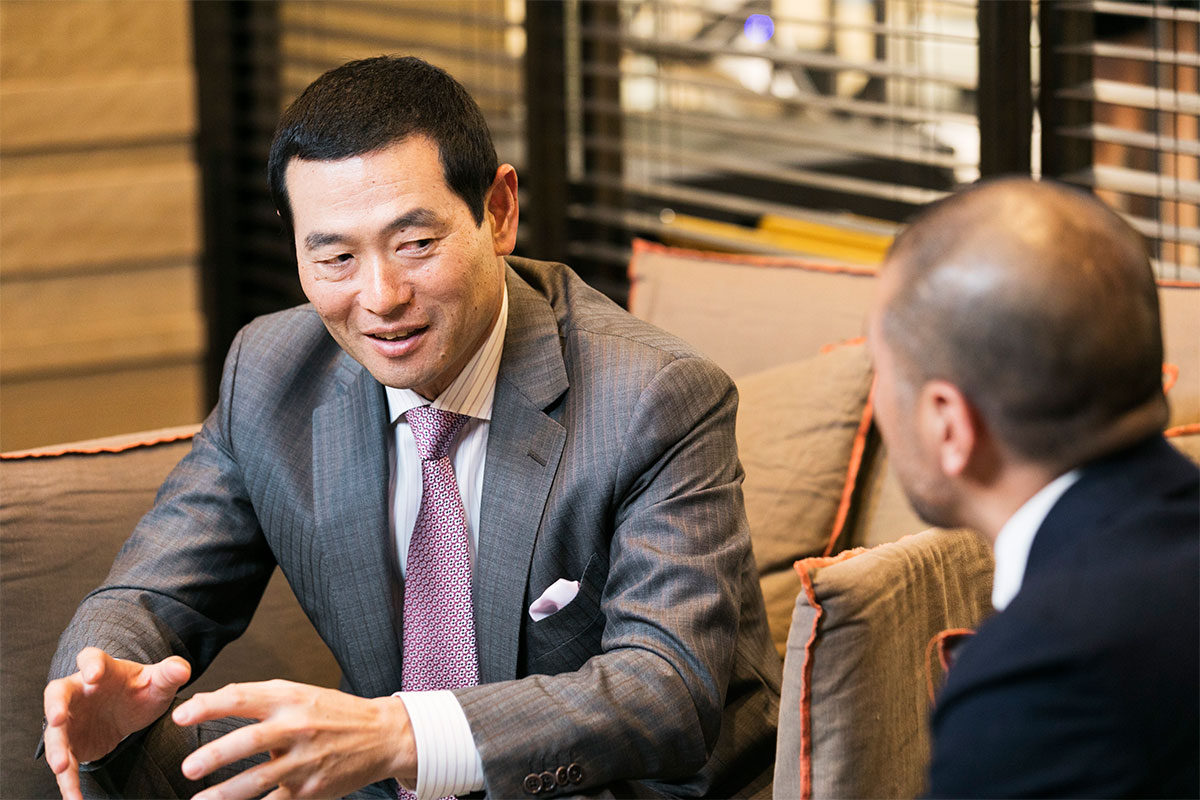
Kuwata : In other words, since they "felt" that they were standing straight, they turned that into a "fact". But to me, it seemed that everyone was being deceived by the myth of "words".
The same thing applies to outfielders. The main purpose of outfielders is "to get the batter out". The main purpose is not "to stop the ball". But, even these days if you visit a local baseball ground, kids are being taught, "Keep your glove close to your face! Keep your hips low!", or "Stop the ball with your body!". However, in that kind of posture, you cannot throw the ball properly, so how can you run the batter out?
Suzuki : Yes, that's so true. (laughs)
Kuwata : Basically, what I'm saying is that even the top baseball players don't really know how their bodies are functioning; there is a difference between how they perceive to be moving and how they are actually moving.
Customer Service at R-body
Kuwata : At R-body, of course all the trainers have the required skill-sets and training knowledge, but another thing that really stands out for me is the staff's friendliness and the way they greet you.
Suzuki : Thank you very much. I'm so happy to hear that.
Kuwata : When someone greets you in a friendly way, it makes you feel inclined to respond in a similar fashion. In this day and age, with email and so on, there are many people of a certain age who struggle to make polite courtesies and friendly greetings. But at R-body, you really sense their warm customer service and friendly attitude.
Suzuki : Hearing you praise the staff at R-body makes me so happy. There is nothing I like to hear more.
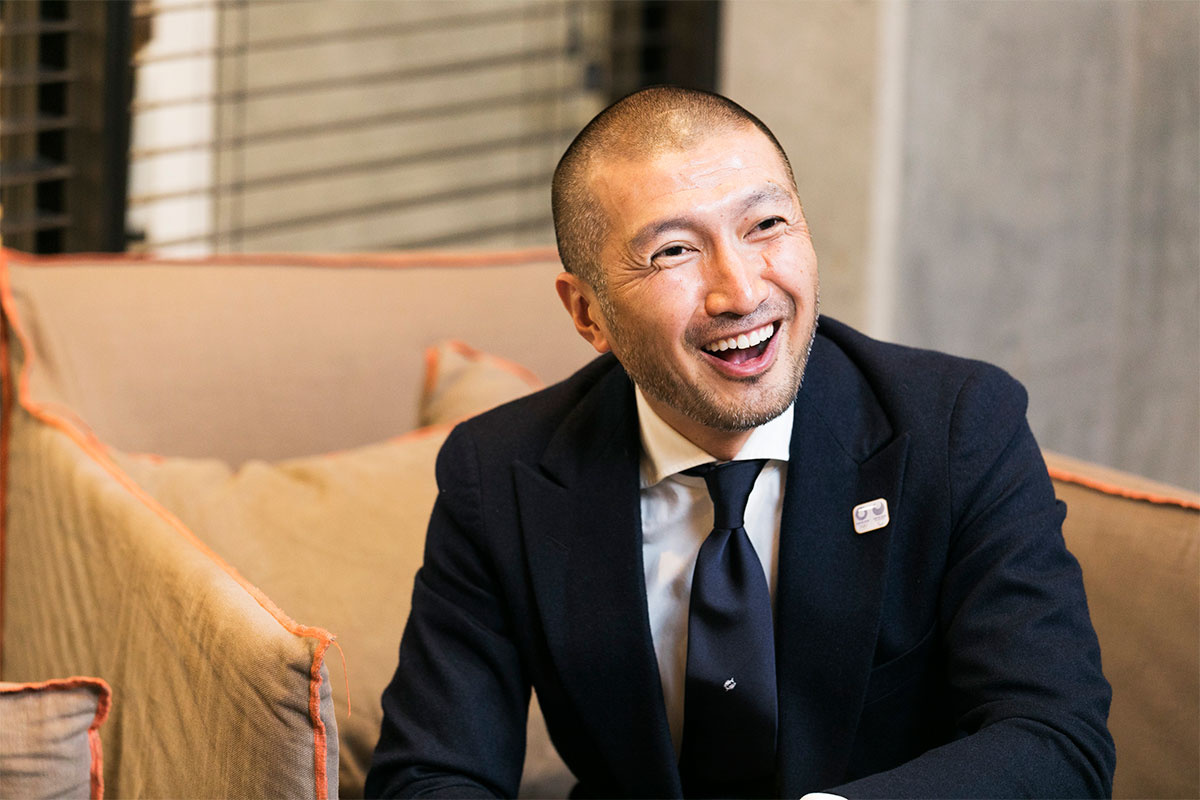
Kuwata : Coming to R-body I learned more than just about conditioning, I also learned about the importance of building good relationships with other people. (laughs)
Suzuki : I started to place importance on greeting people in a polite and friendly way when a senior of mine who I really respected told me, "Be sure to greet all people in the same way, and show them all the same respect". He taught me that one should make the same polite, friendly greetings to a cleaning lady or delivery person as one would to a company president or VIP.
Kuwata : He gave you great advice. How else did you learn about customer service and educating your staff?
Suzuki : When I was a student I was just interested in playing sports, and didn't study specifically about running a company or managing staff. However, I think being part of a sports team and running a company have many crossovers. Both need good teamwork to succeed. And both have people in positions of responsibility, with everything ultimately decided by the person in charge. So I think I learned about management through taking part in sports. In terms of how to manage and educate people, in my case that really is all there is to it.
I think most of the important aspects of society can be found in a condensed form in sports. Having played sports myself, and set up and run my own company, I truly believe that. Sports are a great way to learn about how to educate and manage people. That's one reason why I love sports so much.
Kuwata : Yes, I totally agree.
Suzuki : But going back to the way you praised our staff, I really am happy to hear that, as companies are really all about the people who work for them.
Kuwata : Well, since I'm here, would you like me to heap some more praise on R-body? (laughs)
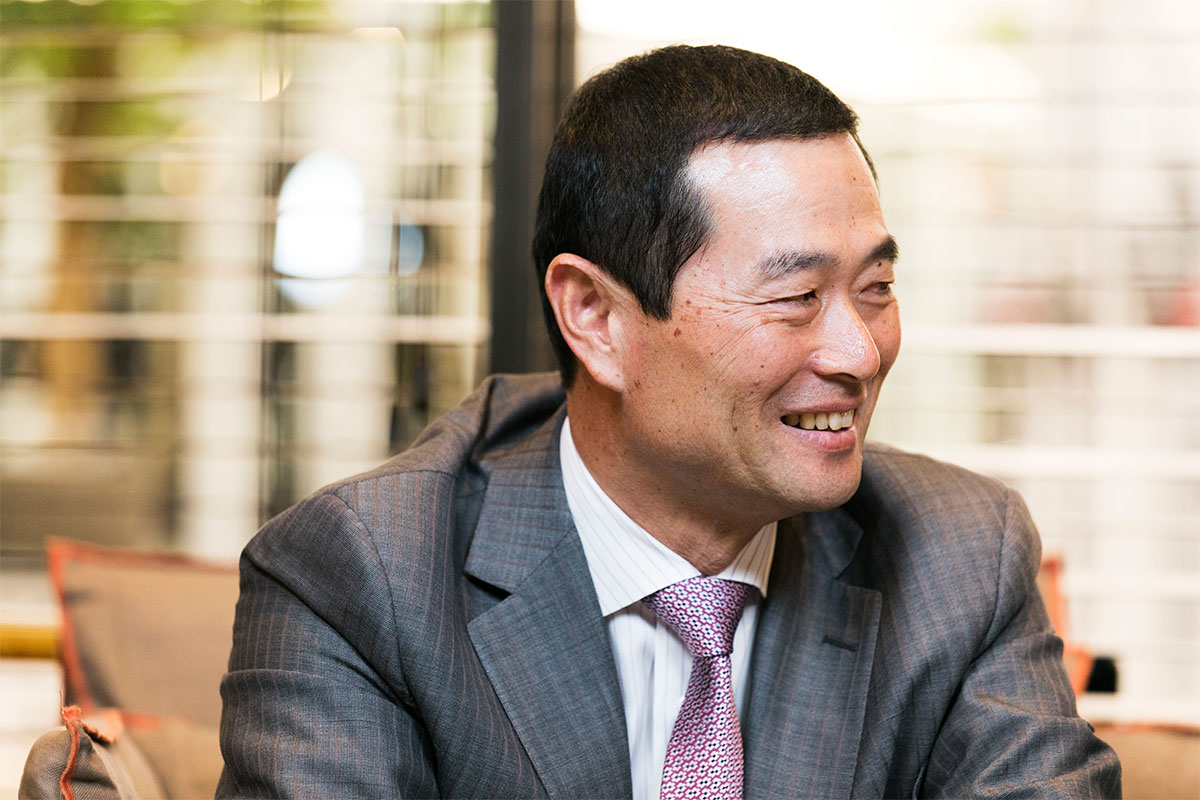
Suzuki : Please, be my guest! (laughs)
Kuwata : I think you have designed a great facility. There is no marble laden jacuzzi or other unnecessary extravagances; just the things needed to get the job done. It is the perfect balance. When I come to your gym, I can feel the sense of purpose for why I have come. I think that's important, you know, to build an environment conducive to serious training. We are not here to be pampered.
I've been growing my own wine for a few years now. Most people know that in order to get high-quality grapes, you need to give them plenty of water, and cultivate them in a place which gets good sunshine. However, in reality, if you push the grapes to the edge, starving them in a harsh environment, you will find that when you eventually give them water, they absorb it better and grow into high-quality grapes. The environment is important, but you don't want to pamper them. The same can be said for R-body, don't you think? (laughs)
Suzuki : Yes! An R-body conditioning center is like a top vineyard! An interesting comparison. (laughs)
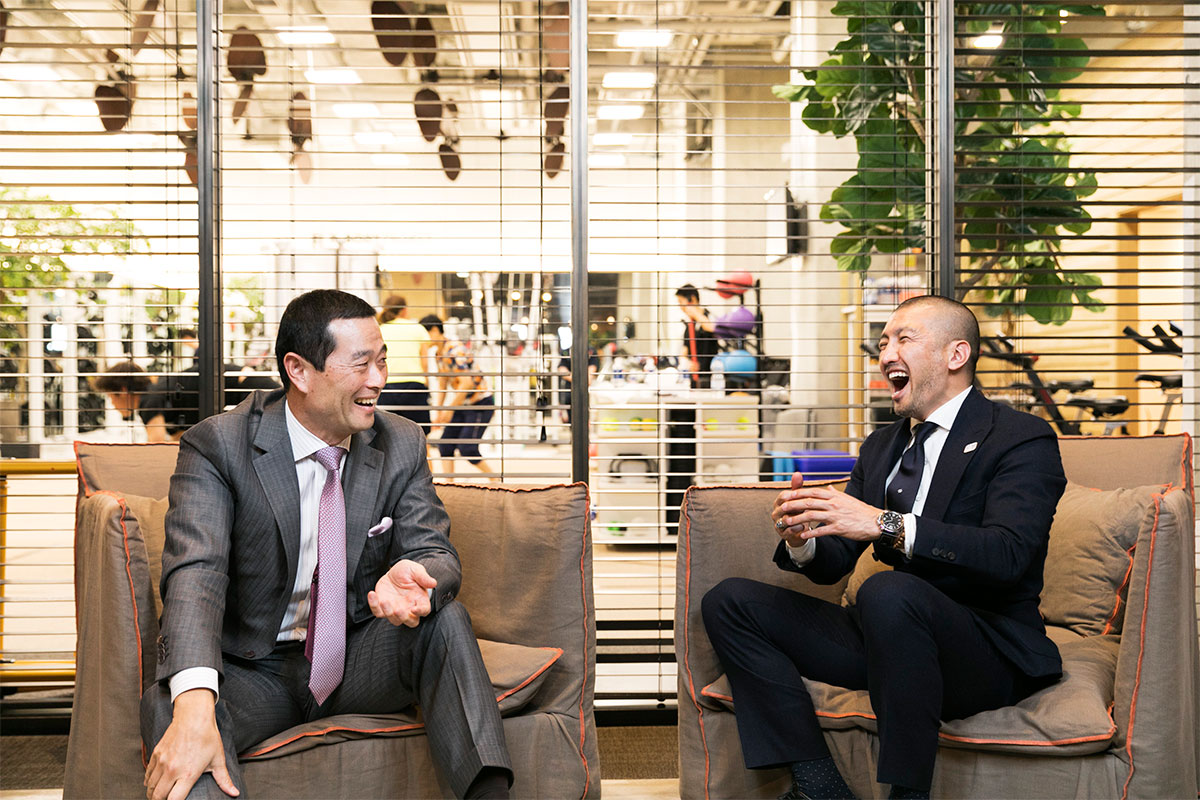
I Want to Live a Long, Healthy Life
Suzuki : What do you think about the meaning of a "healthy body" in the future?
Kuwata : Hmm. Of course "being true to yourself" is important. There is no one-size fits all way of doing things, as each person's body has different characteristics and will evolve at different rates.
For me, while I'm not a professional sportsman anymore, I still want to live a healthy lifestyle. We've reached an era where it is possible to live to 100, but for me the most important thing is to not have any pain or concerns with my body; I want to live a long, healthy life.
Suzuki : Yes. What you say is so important.
Kuwata : That's why I feel that if I don't keep on doing conditioning work to keep me in shape, in 5 or 10 years time I will run into problems, and my goal of living a long, healthy life will start to evaporate.
Suzuki : That's a great way to think about it.
Kuwata : There are some professional sportsmen who when they retire think, "I've practiced and trained all my life, I've had enough", so they stop training anymore. But, in my case, I want to keep learning about my body, and if I take part in baseball training schools or old boy games, I want to be as close to the real me as possible.
Suzuki : It's funny, but I always wondered why you prepared so diligently for old boys' games or other minor baseball events. Not only that, but "with a quiet determination". Then I happened to watch you play in one on TV by chance, and when I saw you throw a pitch I understood completely, "it was for this precise moment". (laughs)
Kuwata : You're totally right. There is something thrilling about setting a goal, and preparing your body to work towards that moment. I truly believe that keeping your body in its peak condition, and striving to live a long, healthy life is so important.
Suzuki : Yes, although it's not as easy as it sounds.
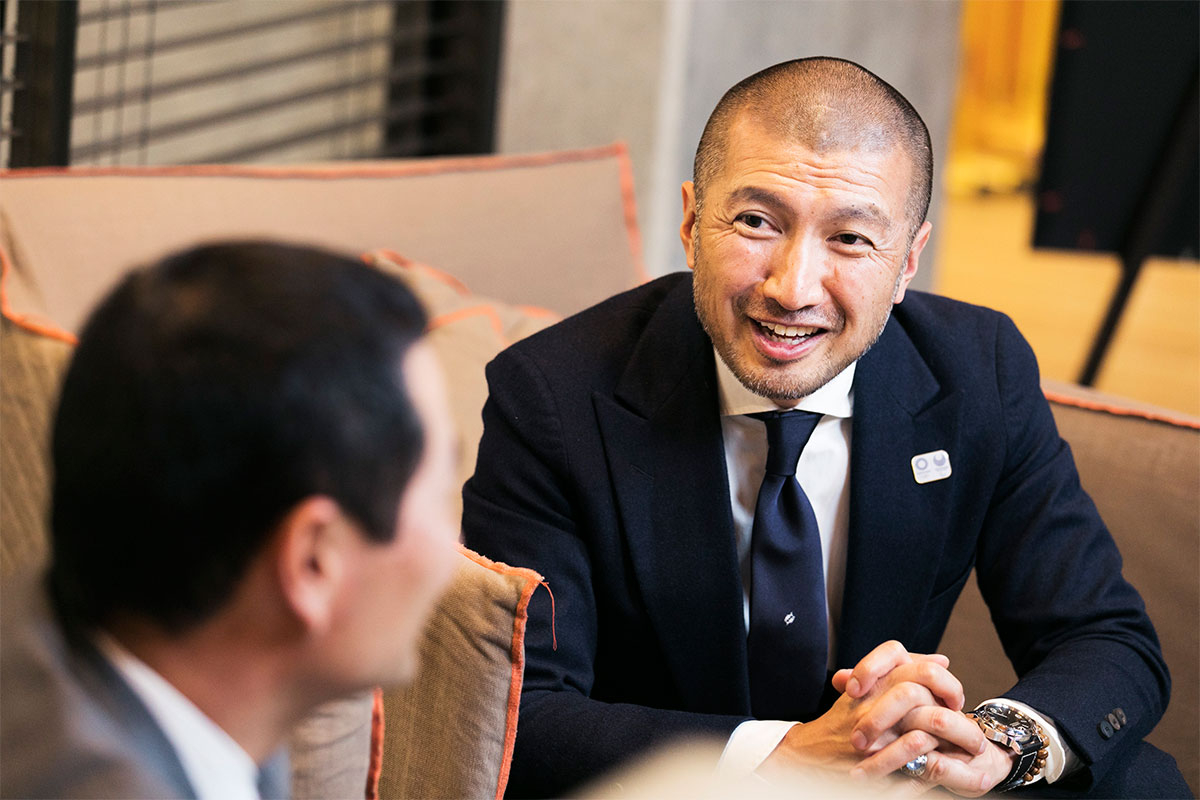
Kuwata : One thing I've felt especially keenly since retiring is that whether you are a business person, a student or a housewife, all of us are basically, intrinsically athletes.
Suzuki : In other words, we are "athletes for life". In order to live a high quality life or lifestyle, all of us need to get our bodies in a condition that allows us to do that. I think that is something we can all relate to, and something for us all to think about.
Anyway, I'm afraid we are out of time. Thank you so much for making time to speak with us today!
Kuwata : It was a pleasure.
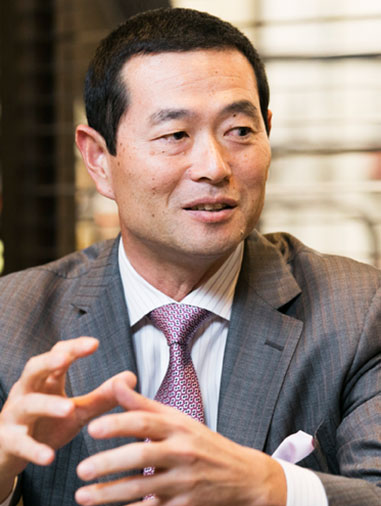
MASUMI KUWATA
Masumi Kuwata is a former professional baseball player, born on 1st April, 1968 in Osaka, Japan. He won the "Koshien" All Japan High School Baseball Tournament while attending the prestigious Perfect Liberty High School in Osaka. He went on to join the Yomiuri Tokyo Giants as their number one draft pick after graduation. At the end of his career he joined the Pittsburgh Pirates in 2007, and played in the US Major League, before retiring from professional baseball in 2008. In 2010, he graduated from Waseda University Graduate School of Sport Sciences, and is currently active as both a coach and professional baseball commentator.
SPECIAL TALK SESSION
-
No.06With this body gifted to me by my parents, I want to make the most of my life
Nao Kodaira x Masahiro Yuki x Takeshi Suzuki. (R-body)

-
No.0515cm of Infinite Potential.
Hiraku Misawa x Takeshi Suzuki. (R-body)
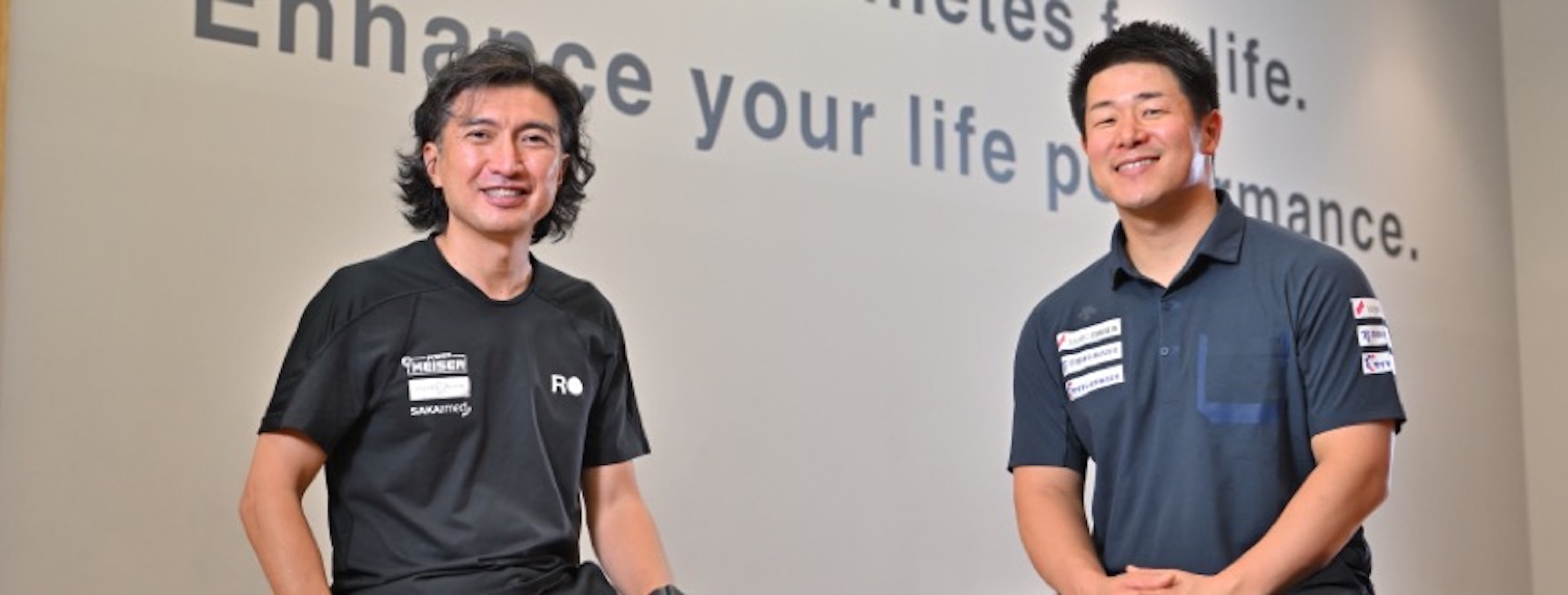
-
No.04To avoid going down a rabbit hole.
Yuji Naito x Takeshi Suzuki (R-body)
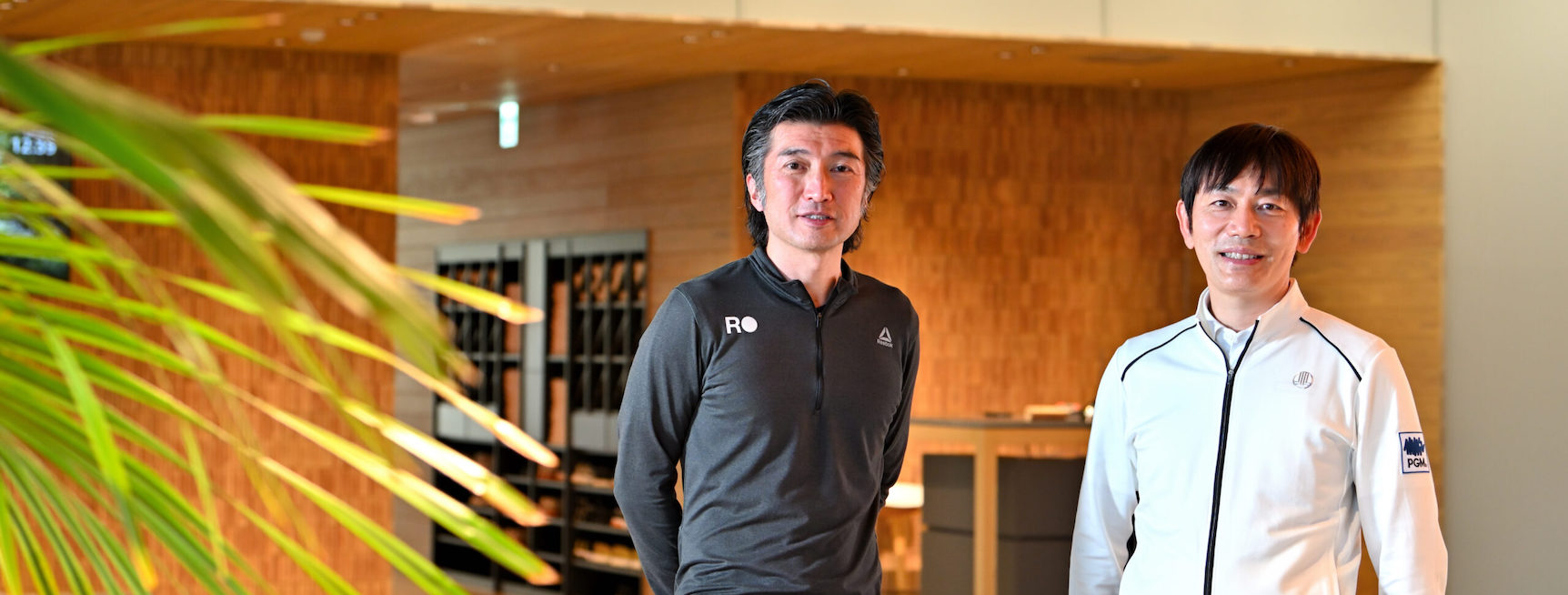
-
No.03Living healthily until 100 years old
Kimiko Date x Takeshi Suzuki (R-body)
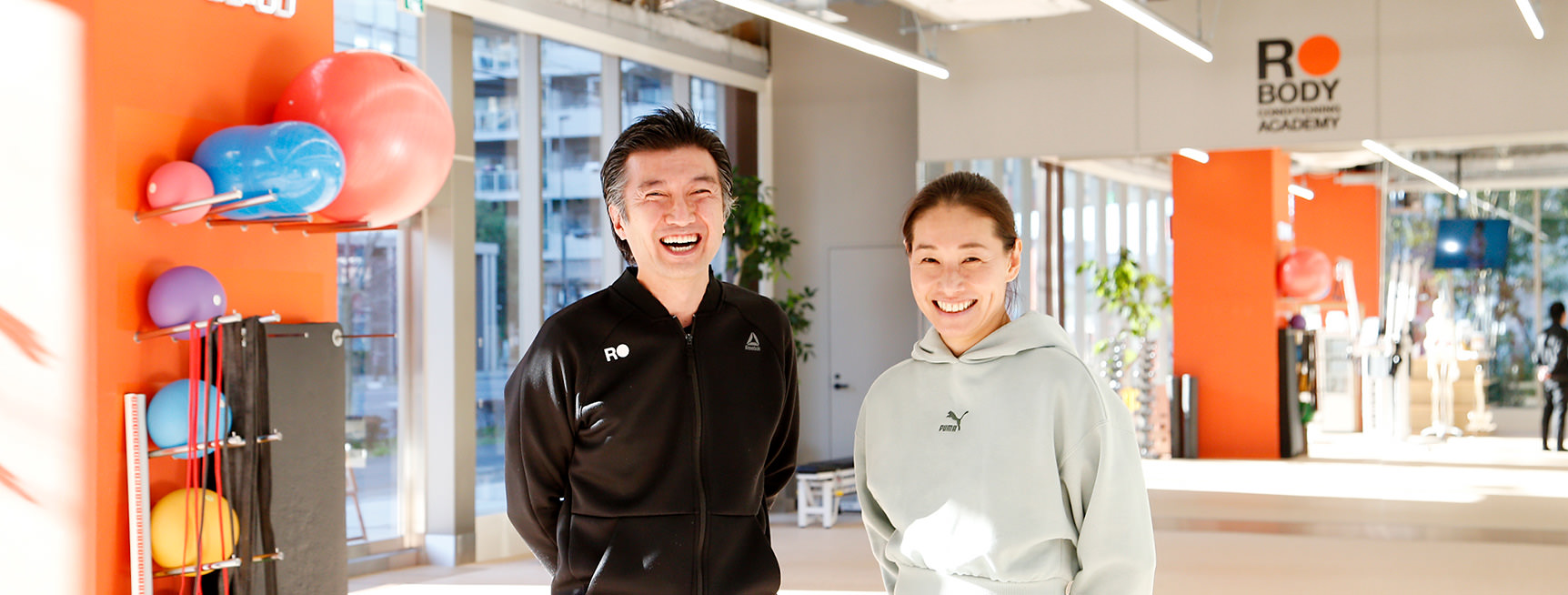
-
No.02Raising the Profile of Japanese Athletic Trainers
Kosuke Kitajima x Takeshi Suzuki. (R-body)
